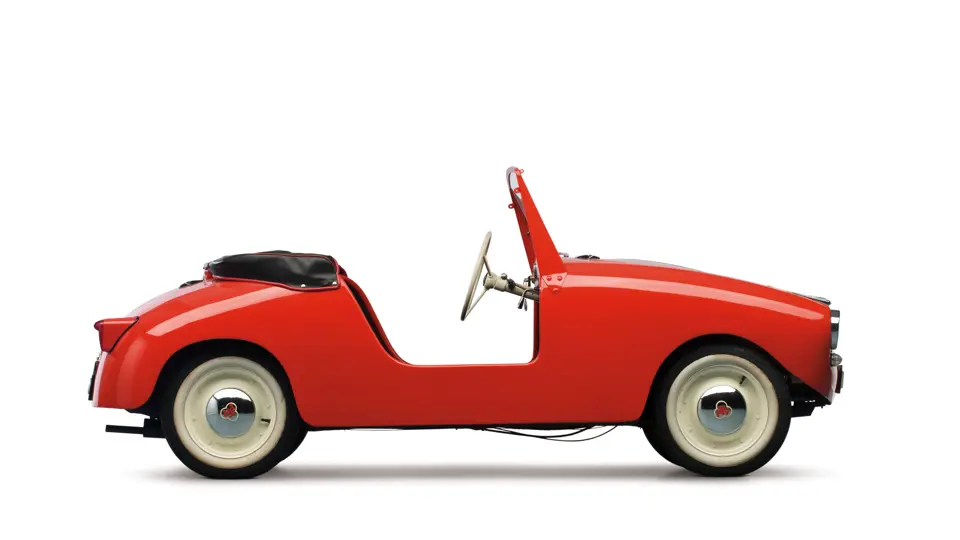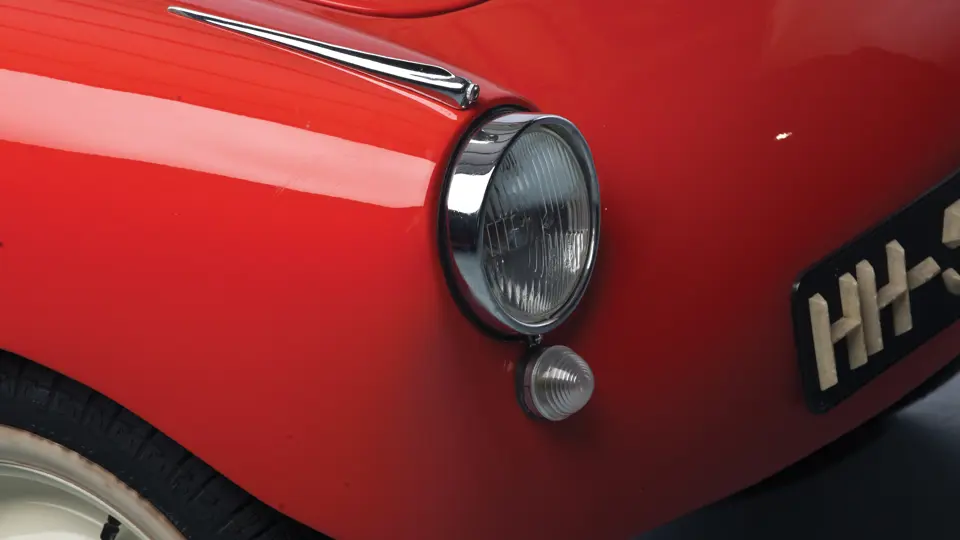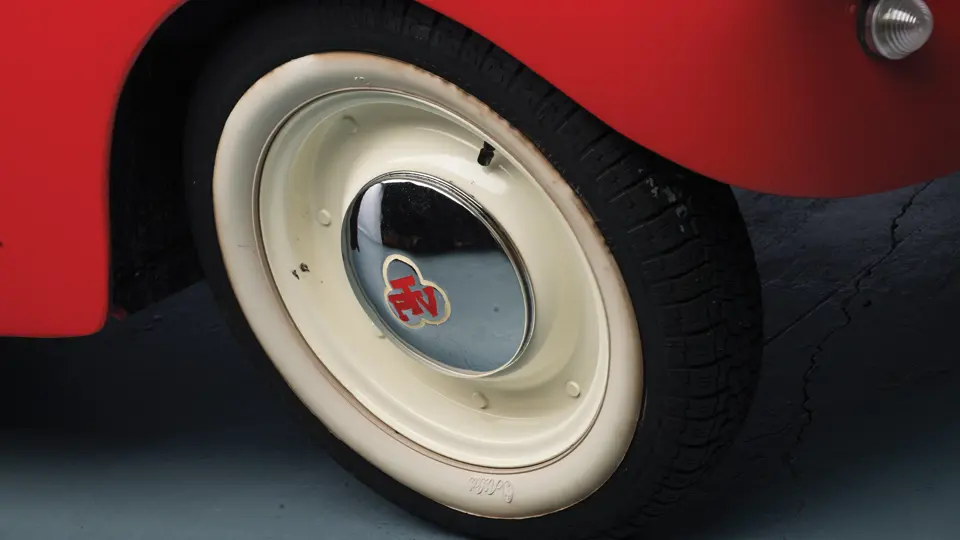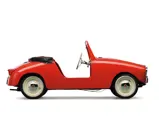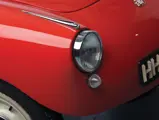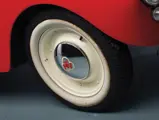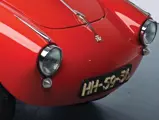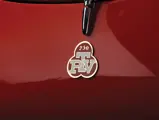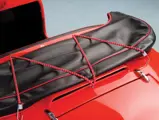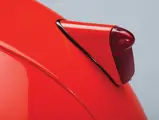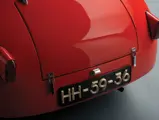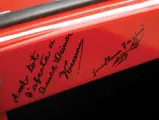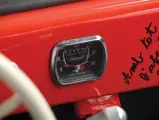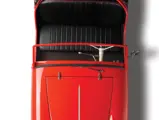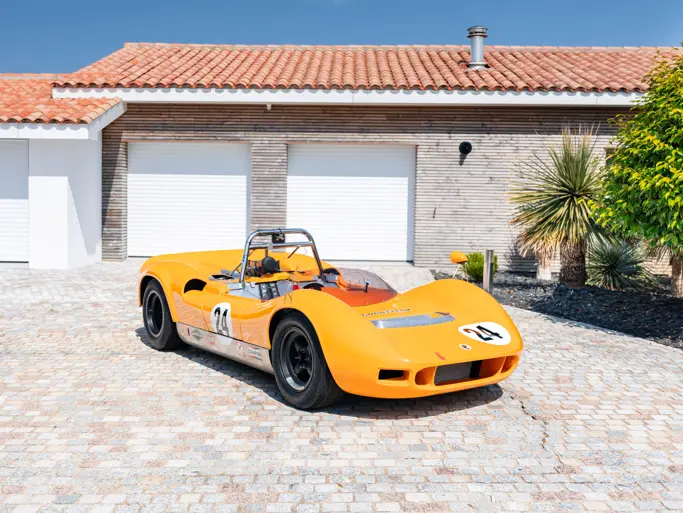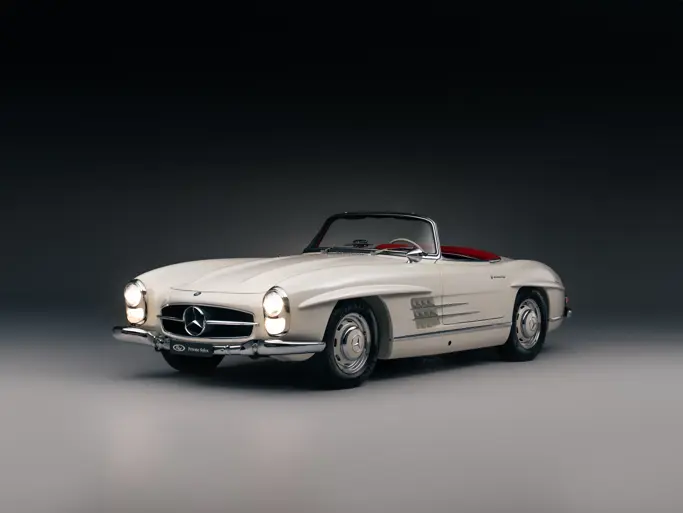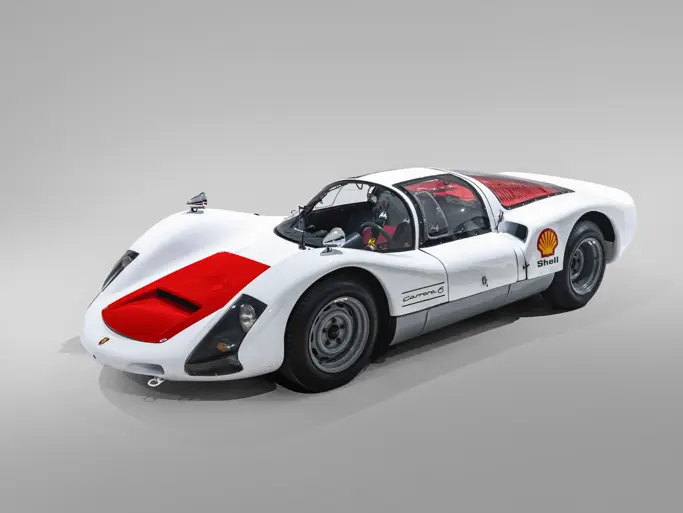One of the finest Spanish microcars, fully restored and presented with its builder’s signature.
SPECIFICATIONS
Manufacturer: AUSA Automoviles Utilitarios S.A.
Origin: Monresa, Spain
Production: 5,000
Motor: air-cooled, 1-cyl, 2-stroke
Displacement: 247 cc
Power: 13 hp
Length: 9 ft. 3 in.
Identification No. M977
Bruce Weiner has excelled in collecting not only some of the rarest microcars, but also some of the rarest examples of each type, with multiple versions of these seldom-seen miniatures in his collection. This is clearly seen in his ownership of two PTVs, “the small car with great performance,” produced in Manresa, Spain during the late-1950s and early-1960s.
The PTV was ordinarily one of the better-equipped microcars, built towards an upscale market with two-tone paint, chrome trim, and 12-inch wheels. However, in keeping with Mr. Weiner’s policy of showcasing all the variations of a certain car that he could find, the example offered here is an early Sport model, which lost such comforts as doors and side windows, keeping only a windshield and skimpy folding top. The result is a car that feels like a slightly more sophisticated dune buggy, and it could, indeed, be used for similar purposes, zipping around the marina or the streets near one’s beach house. With its sprightly orange paint and cozy black and red interior, the car has a delightfully eager, puppy-like appearance. A white steering wheel is indicative of this model.
Reportedly, with its 13 horsepower, single-cylinder engine with an aluminum piston and head, this little PTV is capable of 75 km/h, which must be a memorable experience. With independent front suspension, it even handles well, an experience rare among microcars.
The car is presented in nicely restored and driveable condition, so that the new owner can have their experience for himself or herself. As they zip up and down the road, they can be reassured that this car is one of the nicest examples of the PTV extant, as evidenced by the nod of approval it received from builder Guillem Tacho himself —in the form of a short hand-written message to Mr. Weiner on the car’s dashboard.

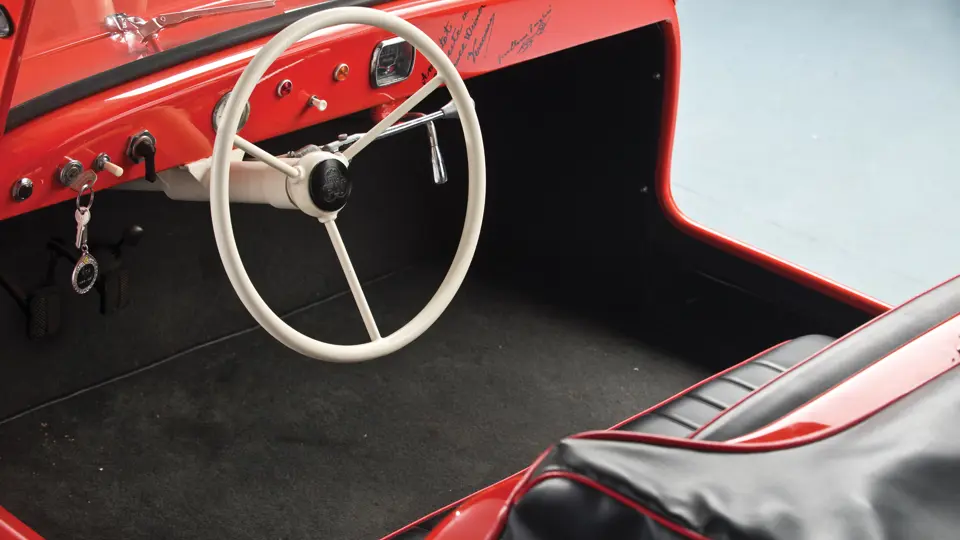


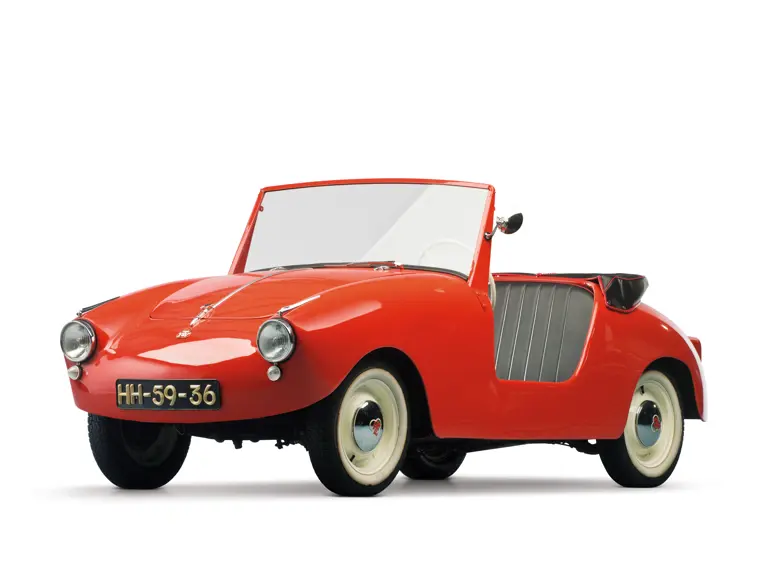
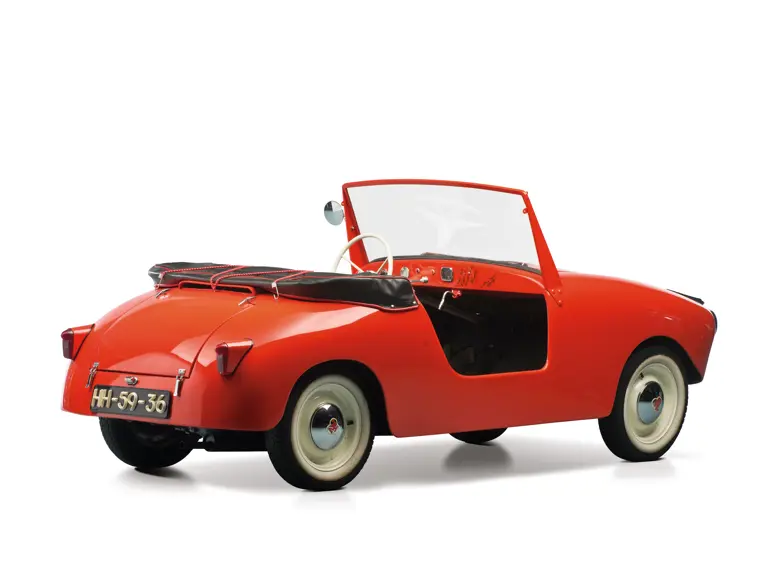
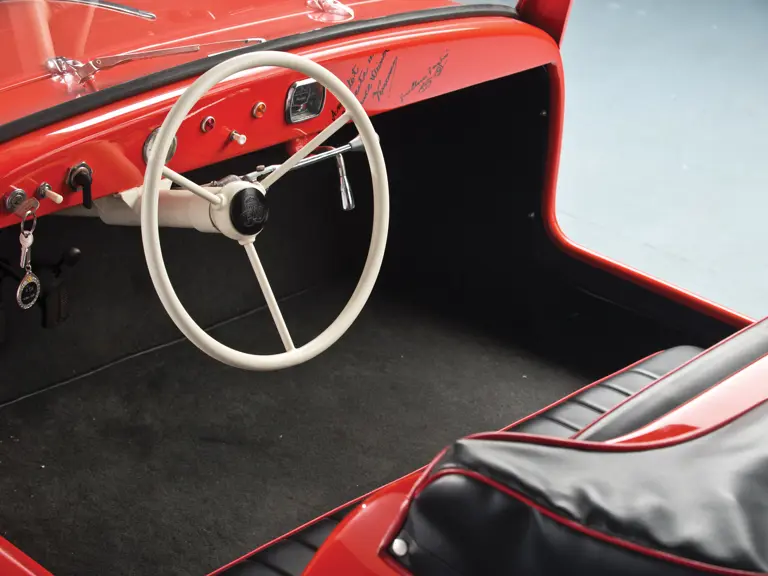
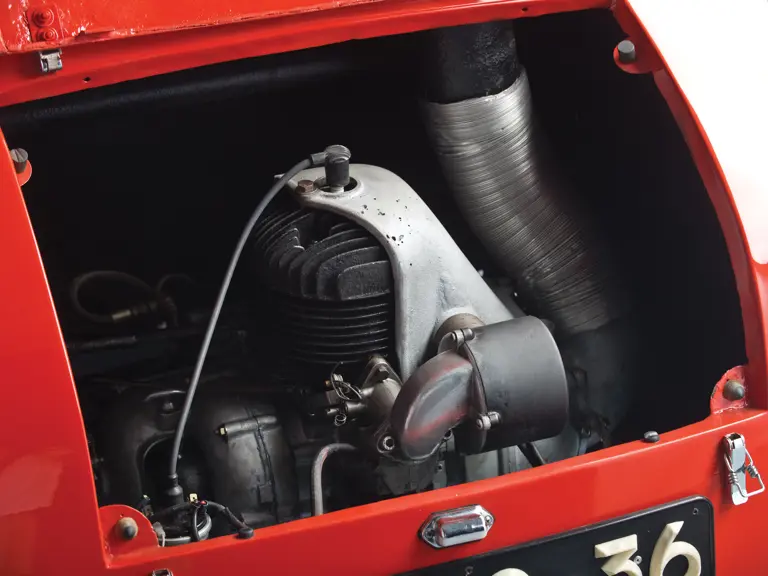
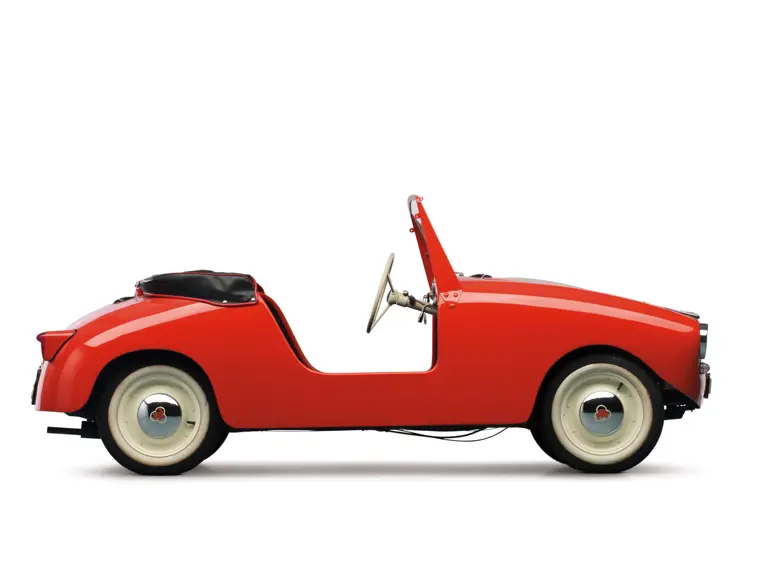
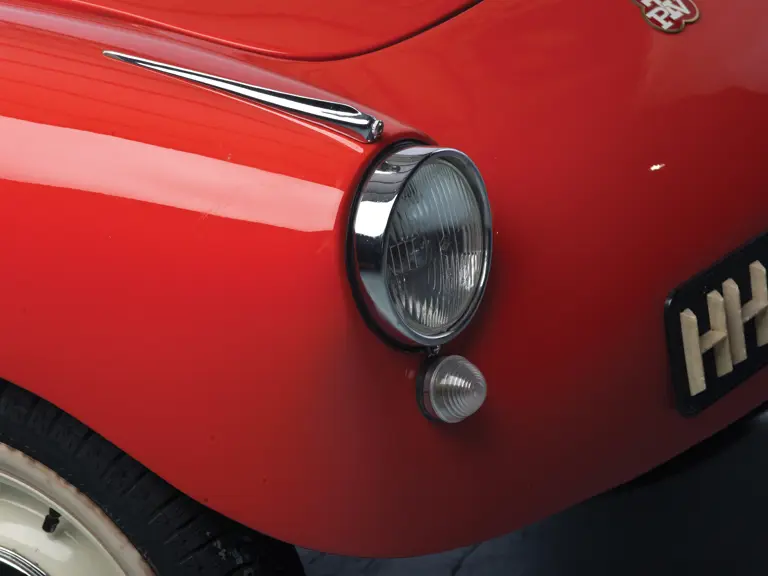
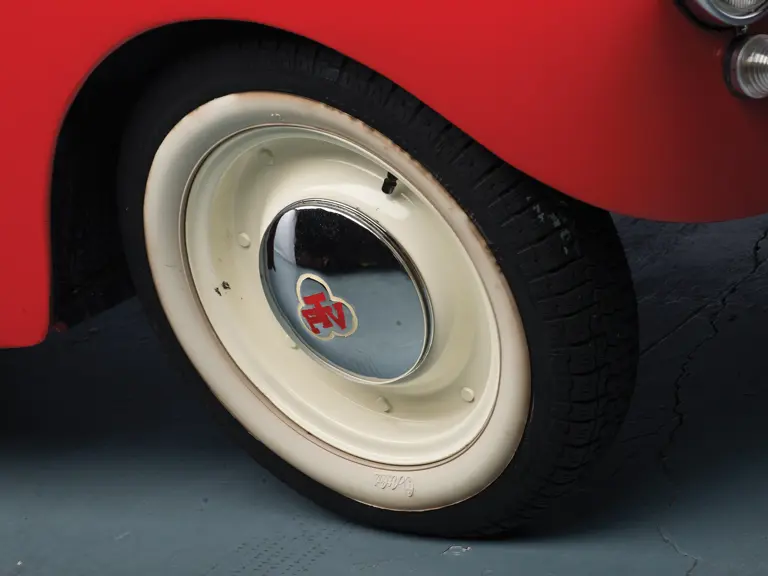
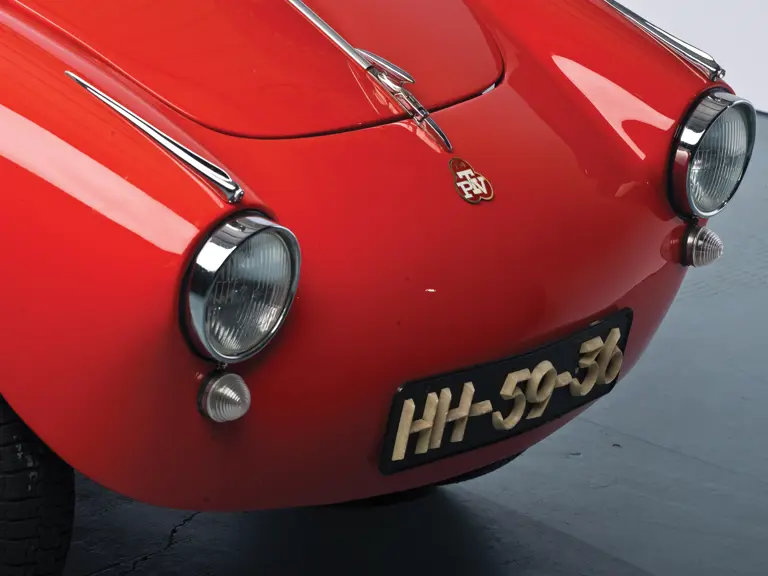
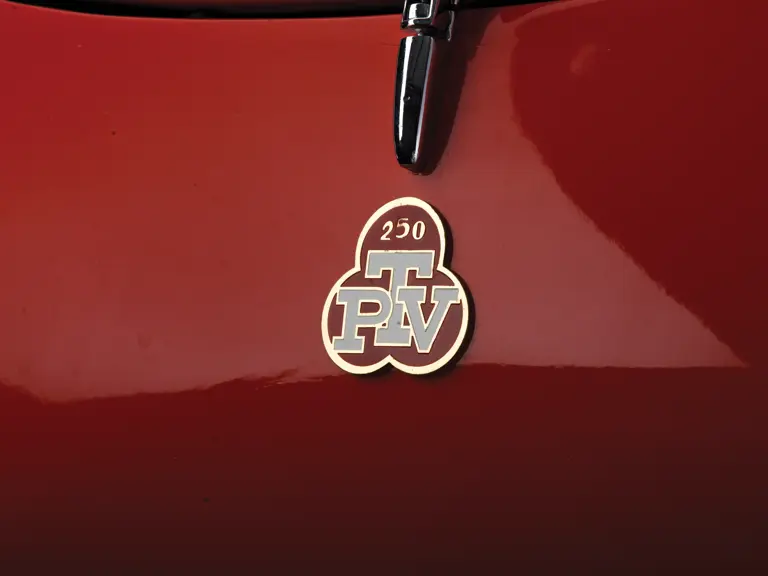
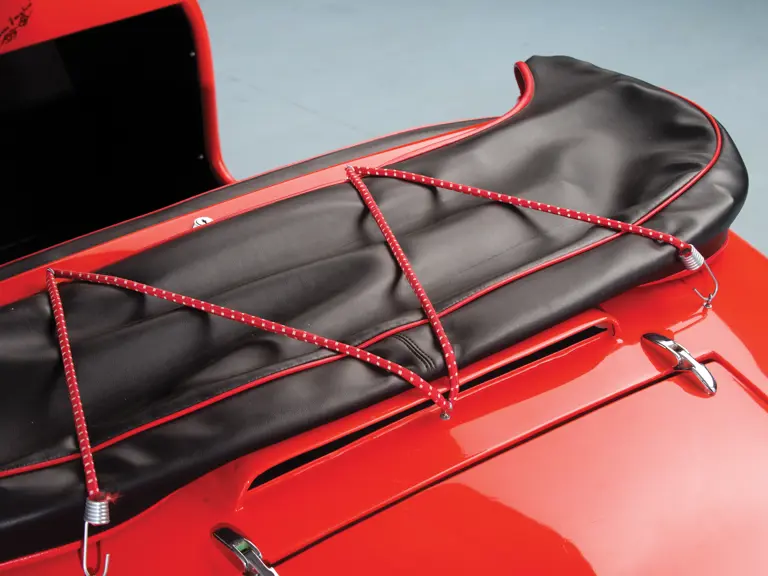
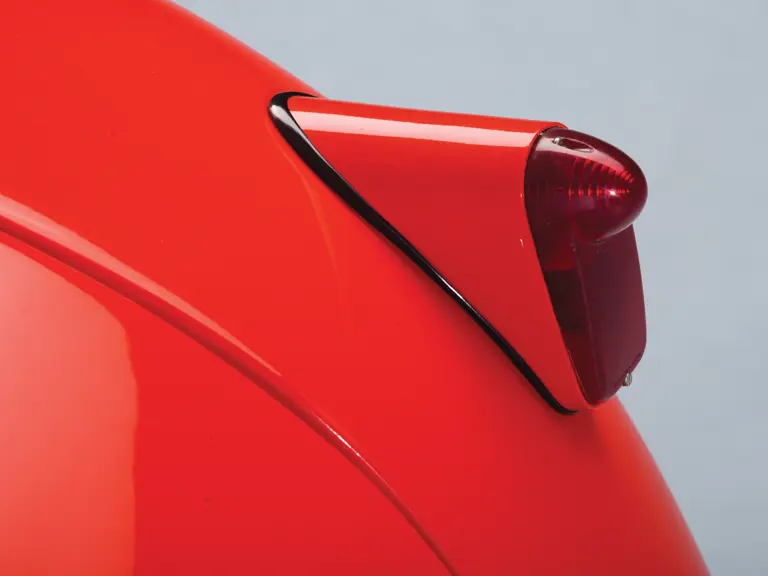
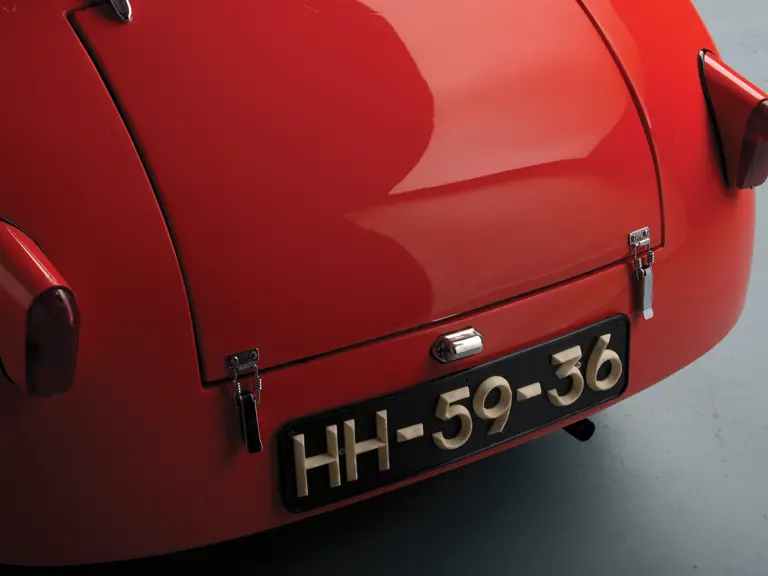
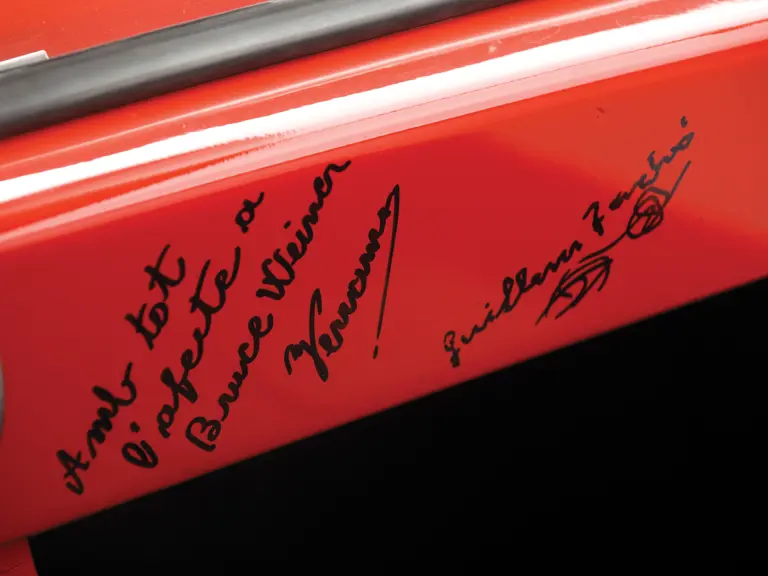
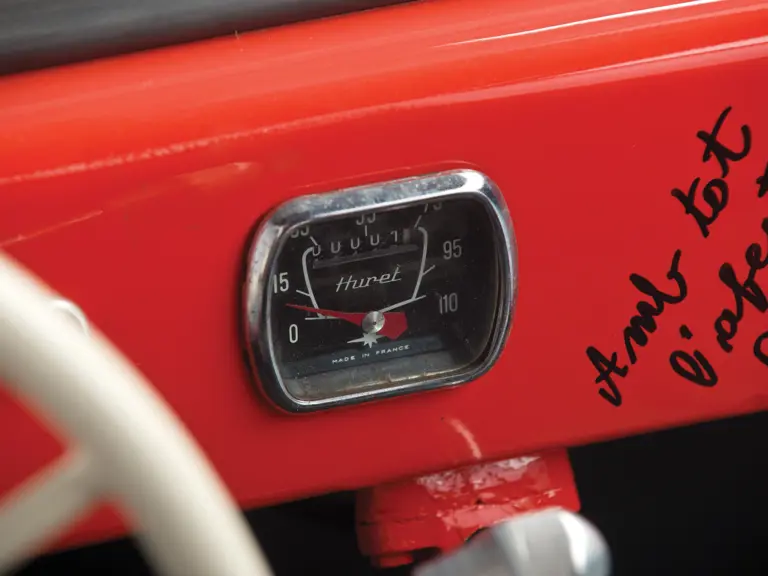

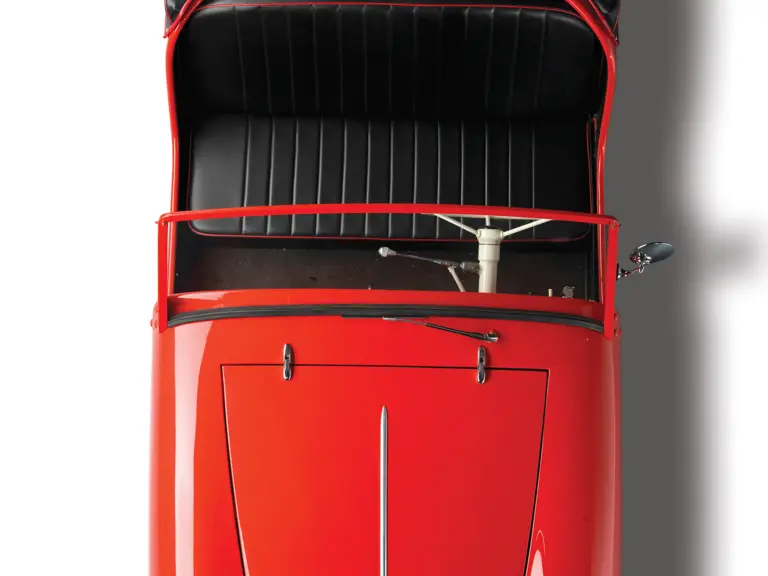
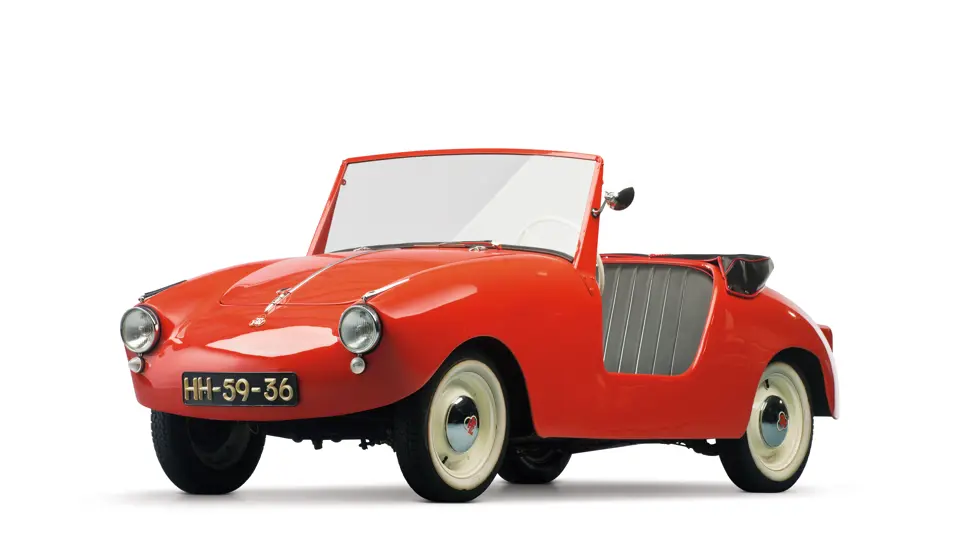
 | Madison, Georgia
| Madison, Georgia
